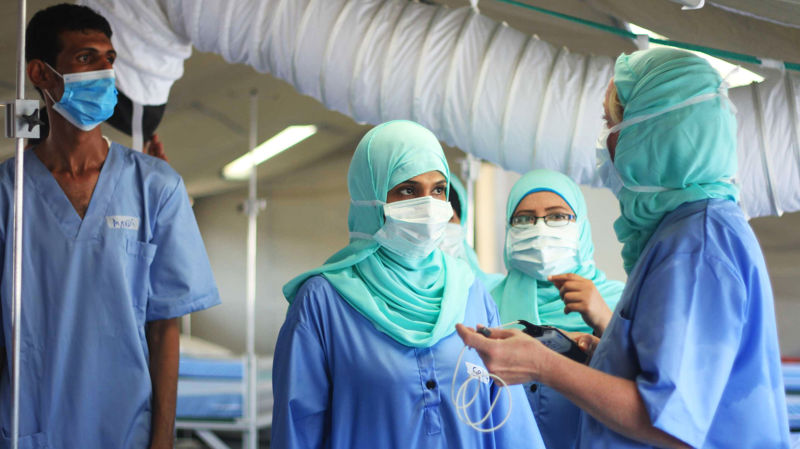“I volunteer at the oral rehydration point every day, hoping to save lives”

Cholera is particularly prevalent in the Hopley suburb of Harare, the capital of Zimbabwe, e.g. due to the lack of clean water and poor availability of hygiene services. Volunteers from the Zimbabwe Red Cross Society are doing vital work at oral rehydration points.
Although it is early in the morning, the temperature already exceeds 28 degrees and rhythmic music can be heard from one of the buildings. Volunteers from the Zimbabwe Red Cross Society are just setting up an oral rehydration point. One of the volunteers is Fortunate Chiwamba, 43.
“I signed up as a volunteer because I wanted to help my community. When I see how people trust in me and appreciate my work – it's the best feeling in the world. I want to give a voice to those who are not heard otherwise,” Fortunate says.
Fortunate volunteers at the oral rehydration point that treats patients with less severe cholera symptoms. Cholera is a rapidly spreading disease that causes severe vomiting and diarrhoea. Without treatment, a patient with severe symptoms may die within hours.
Cholera usually spreads via contaminated water, meaning that settlements such as Hopley, where clean water, hygiene services and efficient waste management are not available, provide ideal conditions for the spread of the disease.
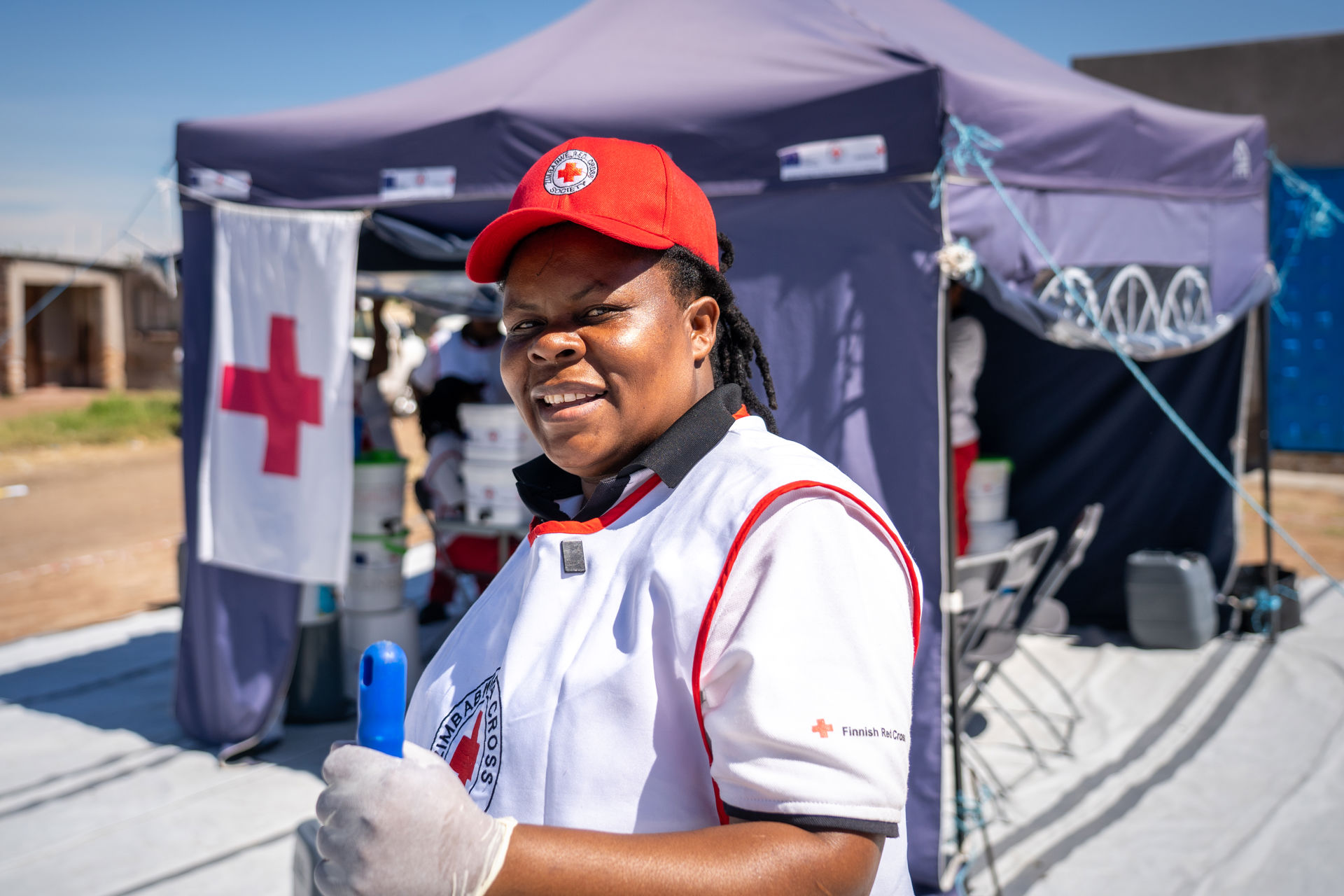
The cholera epidemic began in Zimbabwe in February 2023. We have supported the Zimbabwe Red Cross Society in fighting cholera together with the European Union, the Ministry for Foreign Affairs of Finland and those who have donated to the Disaster Relief Fund.
We have trained a total of 300 volunteers to raise awareness of cholera, its prevention and treatment in local communities.
Furthermore, we have assisted the Zimbabwe Red Cross Society in purchasing aid supplies such as rehydration solution, drinking water, chlorination supplies and protective clothing. More than 650,000 people have already been reached through the cholera operation in Harare.
Oral rehydration points offer rapid treatment
Volunteers are on duty at the oral rehydration point every day. For example, they give out a sugar-salt solution to drink on the spot to improve fluid balance. Volunteers also provide patients with hand soap, water purification solution and sachets for making sugar-salt solution at home.
If a patient is in serious condition, the volunteers alert the Zimbabwe Red Cross Society transport to take the patient for further treatment at a health clinic. Fortunate has also experienced this situation.
“When the oral rehydration point had been in operation for about a week, we noticed a patient who was in very critical condition. The patient was vomiting and had diarrhoea. We quickly administered rehydration solution and called for a transport to take them to a health clinic for further measures. About a week later, the patient came back to thank us, fully healthy. The person is now becoming a volunteer themselves to also be able to save lives in the community,” Fortunate says.
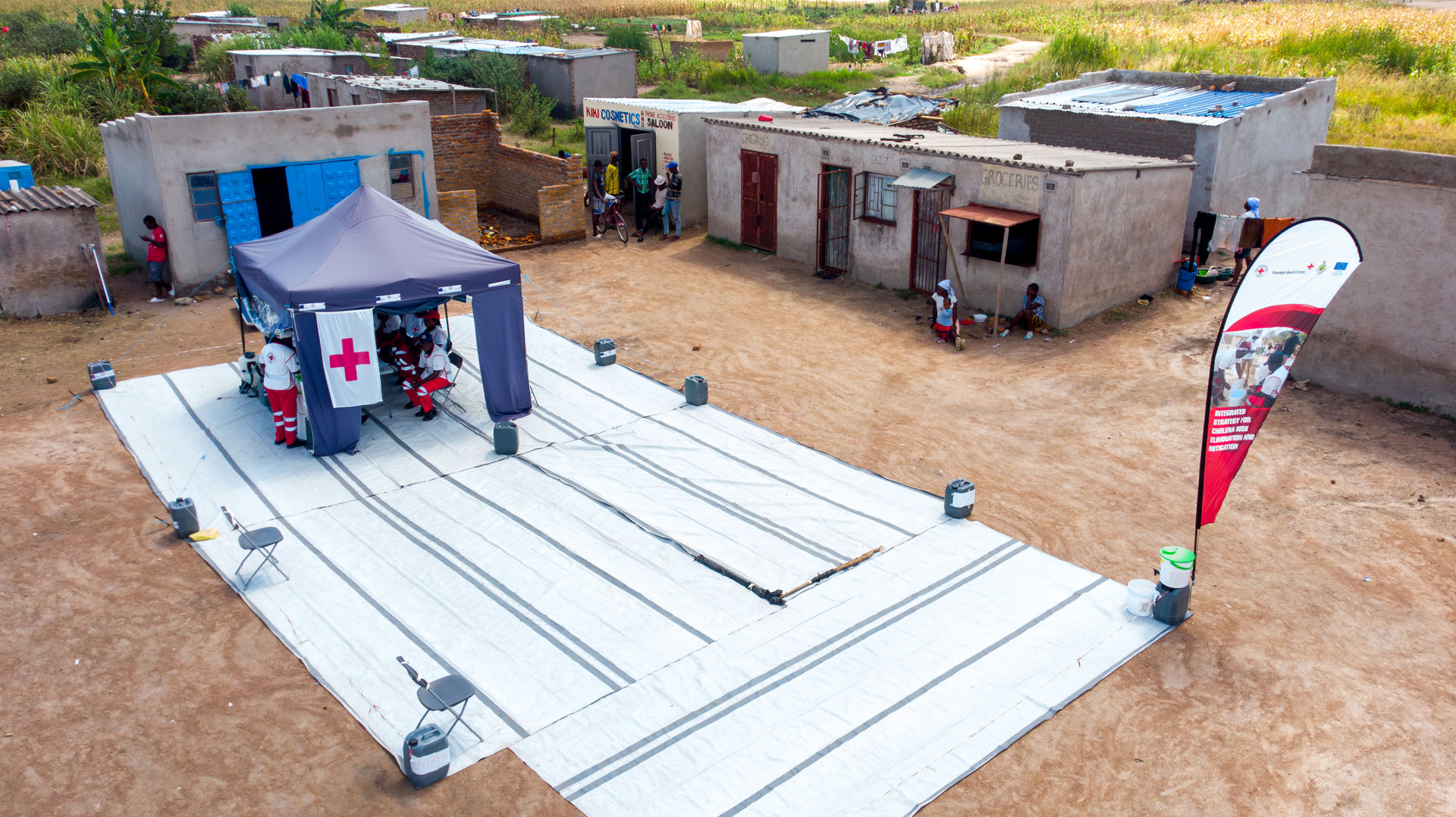
Volunteers also go around making house calls. During these house calls, volunteers explain the symptoms of cholera and how to protect against it. For example, volunteers advise people to use boiled or otherwise purified water in the preparation of food and talk about good hygiene practices.
“During house calls, we also talk about the oral rehydration points. We encourage people to come to the oral rehydration point if they experience symptoms of cholera. If everyone keeps these instructions in mind, cholera won't win” Fortunate says.
Lessons learned from volunteers stick with you
Fungai Moyo, 28, has brought her daughter Mirriam, a little over 2 years of age, to the oral rehydration point. Fungai says Mirriam has been throwing up, so she decided to come and get help.
“I heard about the oral rehydration point through Red Cross volunteers making house calls,” Fungai says.
At the oral rehydration point, both Fungai and Mirriam received sugar-salt solution to drink. Volunteers also provided Fungai with advice on how to prevent the transmission of cholera.
“We also received water purification solution to use at home, as well as sachets to help me make the sugar-salt solution myself. The volunteers are doing really important work at the oral rehydration point. The point is very close to my home, so I can easily come here if Mirriam gets sick again,” Fungai says.
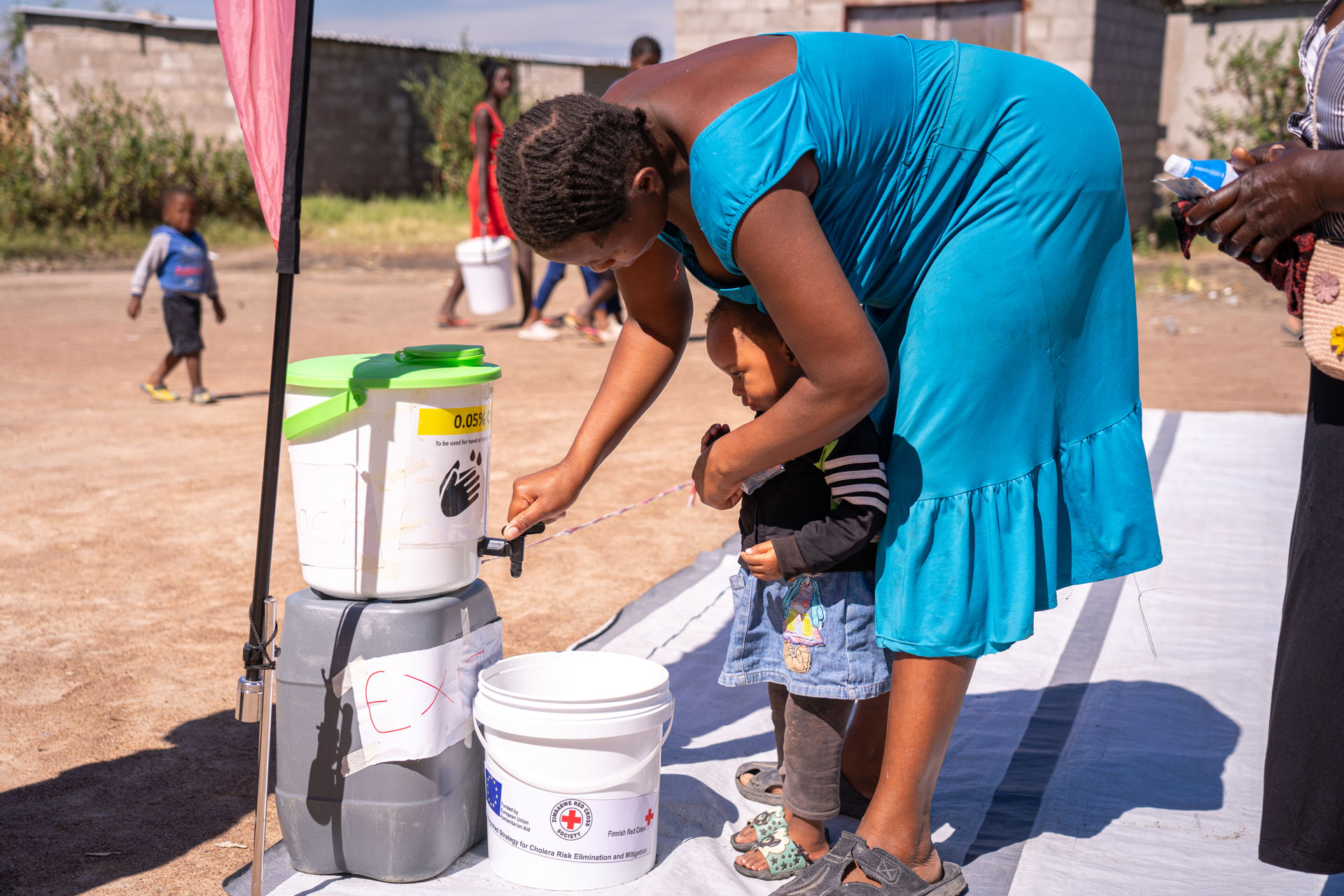

Text: Sini Anttila
International Communications Producer
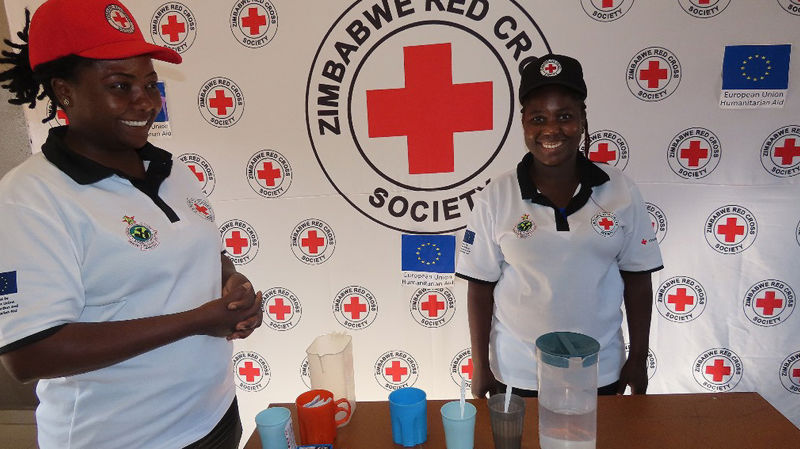
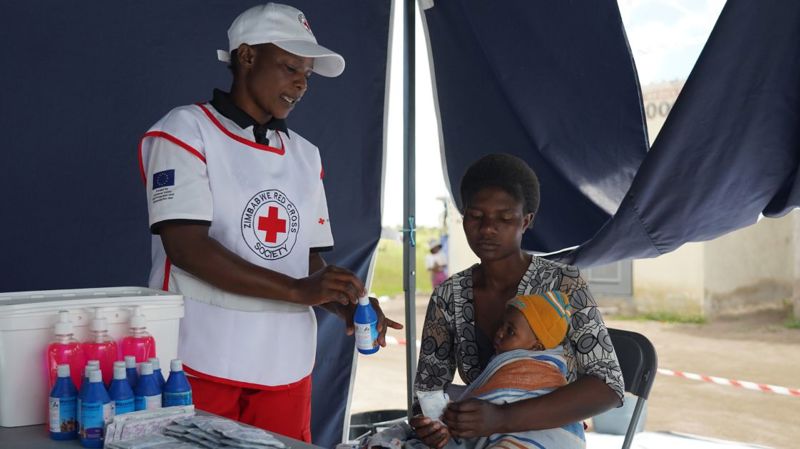
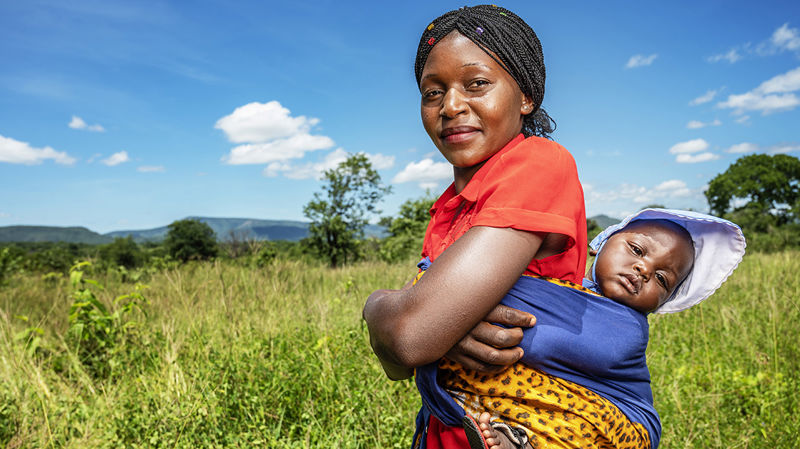
Development cooperation
